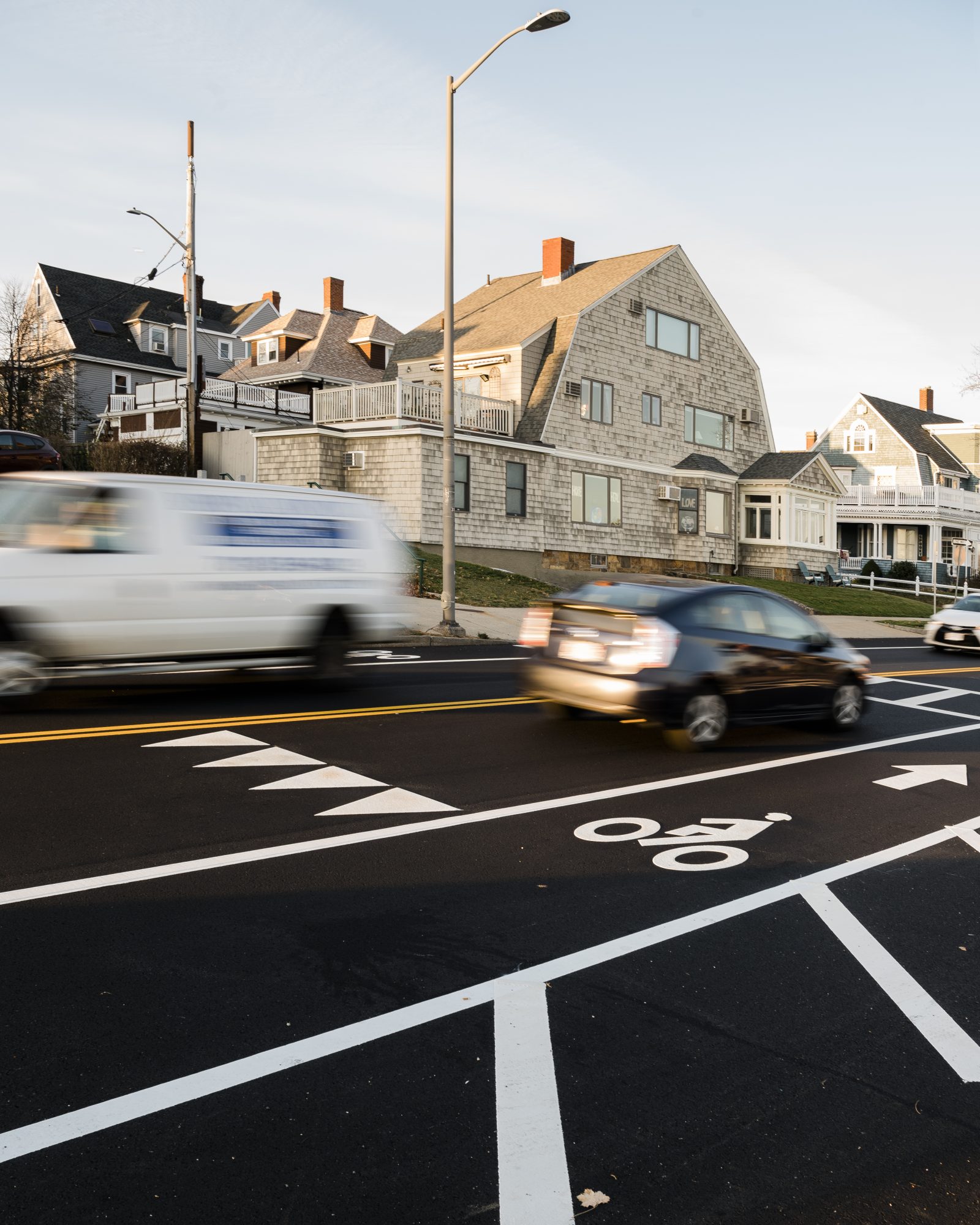Remember the Ant bikes? The 2018 experiment intended to bring climate-friendly, freewheeling fun to Lynn ended with the lime-green bikes cluttering up streets and sidewalks and the City Council ordering them out of town.
The Ant bike failure didn’t keep city and state officials from ensuring that downtown streets, including Broad, Market and State, became less car-friendly by painting bicycle lanes next to their curbs, and, in North Common Street’s case, adding a red combination bicycle-and-bus lane.
Not to be left out, Lynn Shore Drive now sports bike lanes that wedge only the most intrepid two-wheelers between parked cars and commuters before dumping them abruptly into the bicycle-unfriendly Nahant Rotary.
OK, maybe Lynn isn’t advanced enough to follow Cambridge into two-wheel nirvana, but how many forward-thinking transportation ideas can you jam down one city’s throat?
It’s not surprising that a city presided over since 2018 by transportation-oriented Mayor Thomas M. McGee, an avid bicyclist, is the recipient of the “Complete Streets” concept, embracing the notion that it’s time for combustion-engine vehicles to surrender asphalt to public transit, pedestrians, and bicycles.
Complete Streets advocates point to Lynn as a city with downtown neighborhoods populated by residents relying on buses to get back and forth to work. That thinking hit hyperdrive with the $15 million proposal to create “center-running bus lanes” on the Lynnway.
Under the state Department of Transportation (MassDOT) and Massachusetts Bay Transportation Authority (MBTA) plan reported by The Item on Monday, the main thoroughfare in and out of Lynn would be squished down to two traffic lanes in either direction with bus lanes running down the parkway’s center.
Bus stops with pedestrian crossings and “physical bump outs” would allow riders to safely board and disembark buses.
There are as many problems with “center-running” lanes on the Lynnway as there are with the downtown bus- and bike-lane infestation. MassDOT says 7,600 people ride Lynnway buses daily, mostly to jobs in Boston or Logan Airport. What about the thousands of people driving cars down the Lynnway to work whose commutes are going to be slowed to golf-cart speed by the lane reduction?
Advocates say “center-running” will reduce bus trip lengths, allowing the MBTA to add more bus runs along the Lynnway. Will the Pollyanna who believes the cash-strapped MBTA is going to add more buses in Lynn please stand up?
Projects like the Northern Strand Community Trail are great, but the proof has to be found in the pudding when it comes to retooling transportation in old cities like Lynn by adding dedicated bus lanes and bike lanes.
Head down State Street and watch befuddled drivers cross the bike lane in order to make a right turn onto Market Street. More to the point, stand on Broad or Market streets or Lynn Shore Drive for an hour and count the number of bikes passing by you.
You might see me in the summer on my grey Schwinn or spot a foursome clad in the priciest bike gear whooshing down the Drive at dawn. But let’s face it, dedicated bike and bus lanes in Lynn represent an admittedly climate-friendly approach to transportation reform that has little to do with the reality of how people in this city get around.
Let’s give commuters solid reasons for giving up cars, like a reduced-fare and electrified Commuter Rail and bringing the Blue Line to Lynn so that people can have reliable transit to work. Let’s follow Boston Mayor Michelle Wu’s example and put free bus proposals on the table.
If we want to extol the virtues of two-wheeling, we can host a summertime East Point-to-Central Square bike race.

